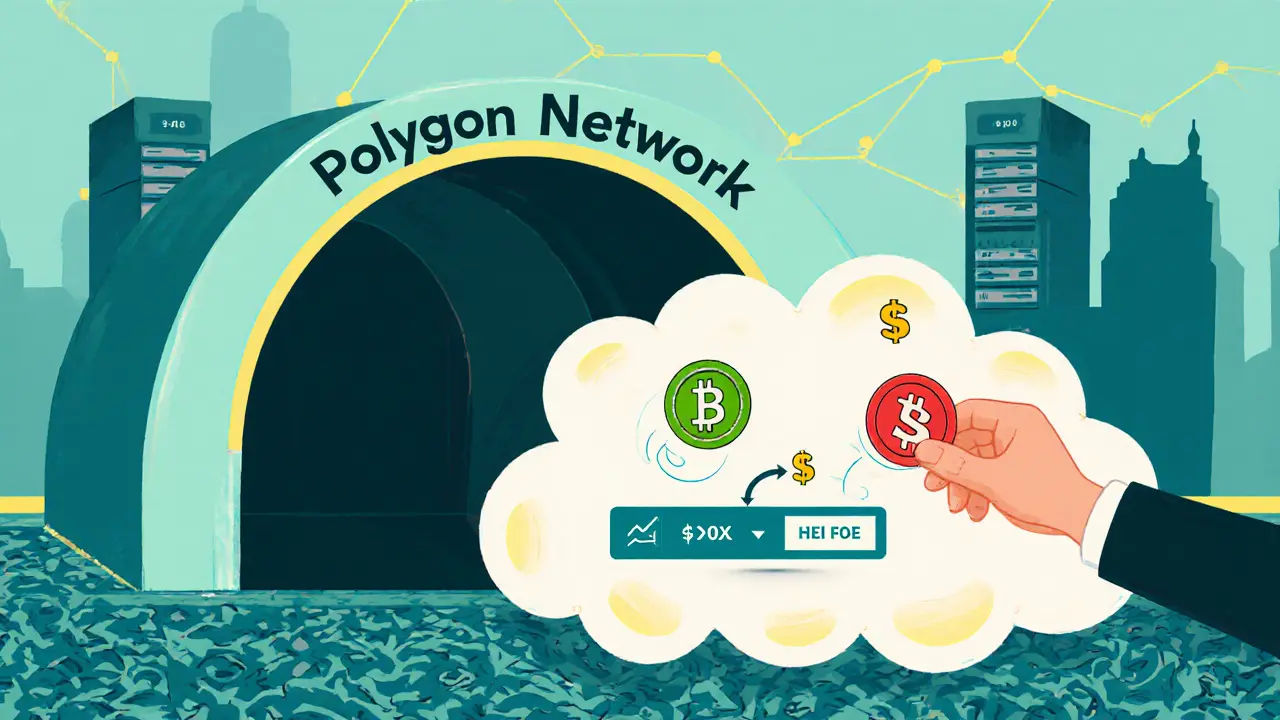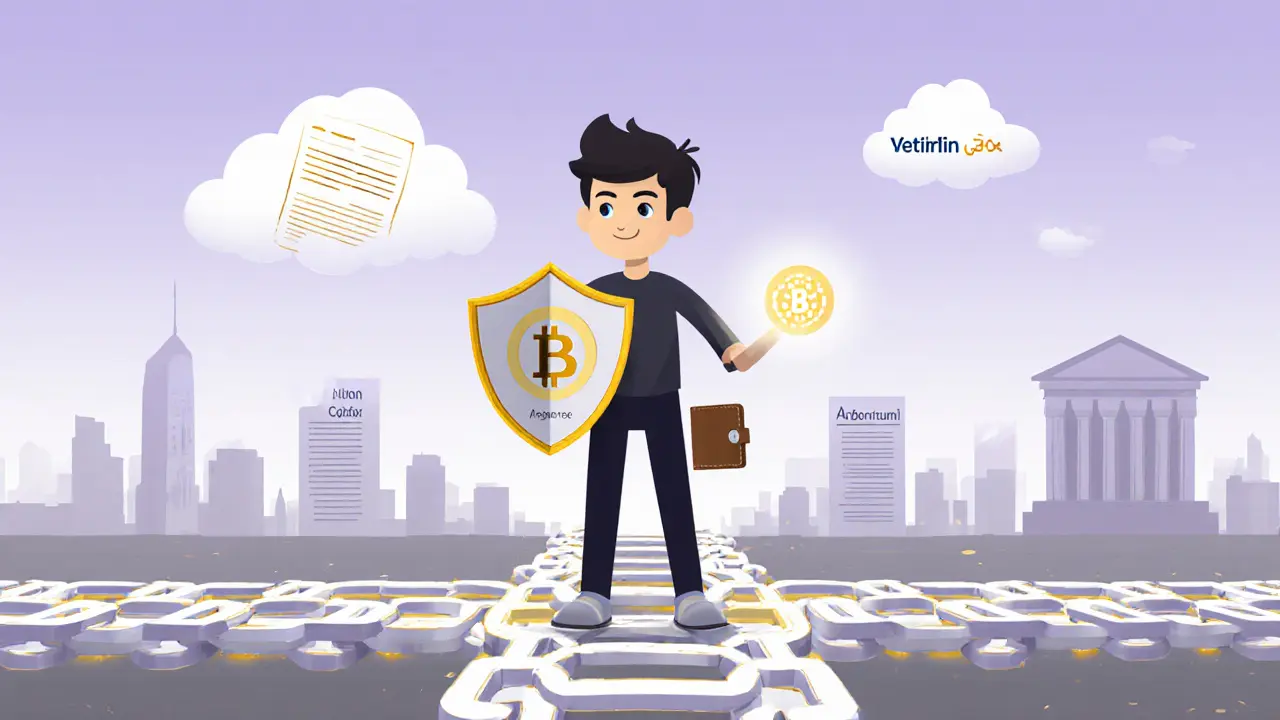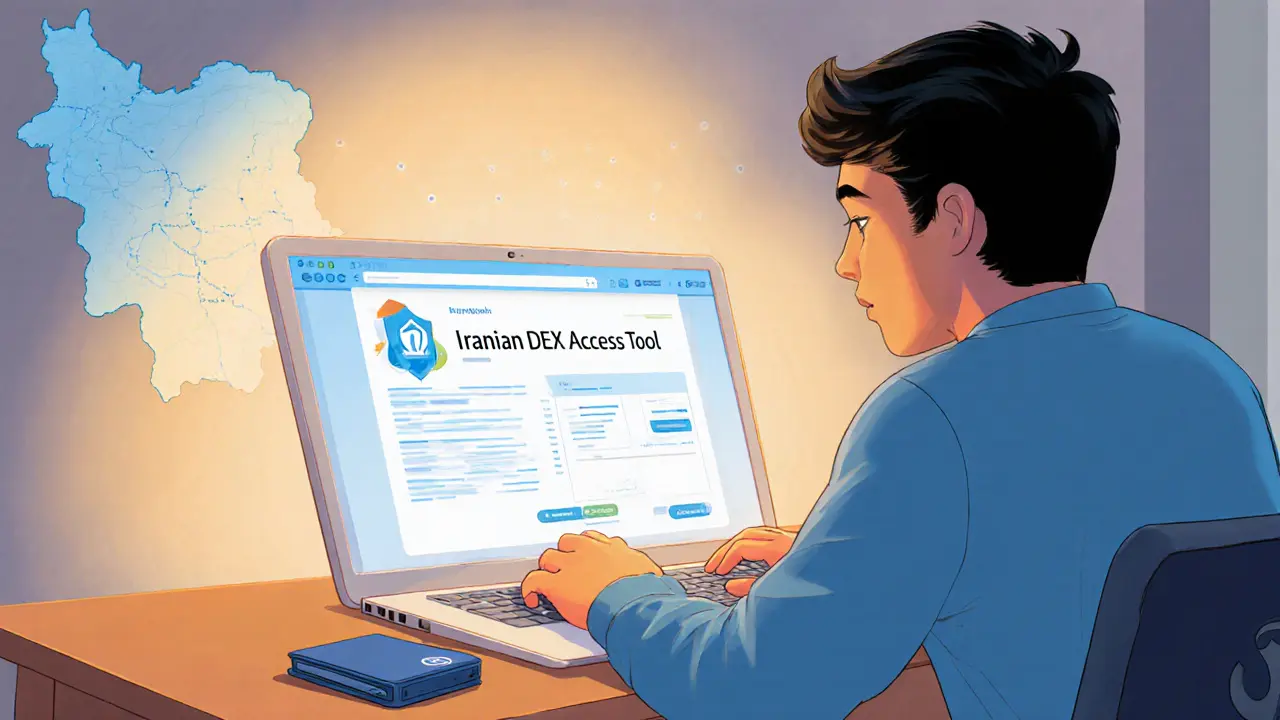Iranian DEX Access Tool
Recommended DEX Options
When Iranian users look for a decentralized exchange is a peer‑to‑peer platform that lets anyone trade tokens without a central authority. The market in 2025 is tangled in sanctions, heavy licensing rules, and a crackdown on traditional exchanges. Yet a mix of technical tricks and savvy platform picks still lets citizens move digital assets across borders.
Regulatory reality in early 2025
In January 2025 Central Bank of Iran (CBI) became the sole regulator for every crypto activity. All traders, miners, and wallet providers must register, share transaction data, and obtain a license. The CBI now monitors every address that touches Iranian fiat, making it risky to use services that expose user IDs.
That same year the government introduced a capital‑gains tax on crypto trades, treating them like gold or forex. The law rolled out in phases, but the message is clear: digital assets are now taxable and must be reported.
Why centralized platforms are getting harder to use
The dominant local exchange, Nobitex, serves over 11million users, but a June 2025 hack that stole more than $90million exposed its ties to the IRGC‑aligned financial network. After the breach, the U.S. Treasury froze 42 Iranian‑linked addresses linked to Tether, disrupting the flow of USDT on Nobitex. Those events forced many traders to look for alternatives that are less visible to regulators.
At the same time, the government prohibits foreign‑mined coins for domestic payments. Even if a user can swap on a global DEX, moving the resulting tokens into the local banking system still requires CBI approval.
Technical workarounds: VPNs and network choices
Iranians regularly use VPN services to hide their IP address and appear as if they are browsing from Europe or the United States. The VPN itself is not illegal, but combining it with sanctioned platforms can still attract attention if the CBI tracks wallet activity linked to suspicious IPs.
After the Tether freeze, many turned to the Polygon network to acquire DAI stablecoin. Polygon offers lower gas fees than Ethereum, faster confirmation times, and a growing set of DeFi tools that are less likely to be blocked by local ISPs.
Below is a quick checklist for setting up a safe connection:
- Choose a reputable, no‑log VPN provider with servers in privacy‑friendly jurisdictions.
- Enable multi‑hop routing if the provider offers it.
- Use a hardware wallet (Ledger or Trezor) to keep private keys offline.
- Prefer networks with low transaction costs - Polygon, Optimism, or Arbitrum.

DEX platforms that work for Iranian users
While no exchange can guarantee complete immunity from sanctions, a handful of DEXs are known for strong censorship‑resistance and broad network support. The table compares key attributes that matter most for users under heavy surveillance.
| DEX | Primary network | Typical gas (USD) | Censorship resistance | VPN‑friendly |
|---|---|---|---|---|
| Uniswap | Ethereum | ≈3.00 | High - open‑source, no central endpoint | Yes - works over any VPN |
| SushiSwap | Polygon | ≈0.02 | High - same smart‑contract layer as Uniswap but cheaper | Yes |
| PancakeSwap | Binance Smart Chain | ≈0.10 | Medium - BSC is semi‑centralized, but nodes are widely distributed | Yes |
| 1inch | Multi‑chain (Ethereum, Polygon, Arbitrum) | Varies by route | High - aggregator pulls liquidity from many DEXs | Yes |
Most of these platforms can be accessed directly through a web‑based interface or via wallet‑integrated DApp browsers like MetaMask Mobile, Trust Wallet, or the Polygon wallet app. The key is to keep the wallet private keys offline and to route traffic through a trusted VPN.
Risk profile and compliance warnings
Even if a DEX is technically accessible, the CBI can still request data from VPN providers, internet service providers, or even from the DEX’s smart‑contract analytics services if they cooperate with sanctions authorities. Users should be aware of three main risk buckets:
- Legal exposure: Operating without a CBI license can lead to fines, asset seizure, or imprisonment under Iran’s anti‑sanctions statutes.
- Technical seizure: If a wallet address is linked to a frozen USDT address, the CBI could file a request to block that address on Iranian ISP routing tables.
- Counter‑party risk: Some DEX liquidity pools contain tokens that may be flagged by OFAC. Swapping into those assets could trigger secondary sanctions.
Staying on widely used, well‑audited pools (e.g., USDC, DAI, WETH) reduces the chance of hitting a black‑list.
Practical tips for safe DEX trading
- Start with a small amount (<0.01BTC) to test the VPN‑DEX combo.
- Convert USDT to DAI on Polygon first; DAI’s stable‑coin peg is less likely to be frozen.
- Use a non‑custodial wallet that supports hardware signing. Never expose the seed phrase online.
- Regularly check the OFAC sanctions list for any token you plan to acquire.
- Keep transaction logs separate from personal identifiers. Some users store logs on encrypted USB drives that never leave the country.
Future outlook: how the landscape may shift
The Iranian government is unlikely to loosen its grip on crypto. The CBI’s data‑access mandate puts pressure on any service that requires KYC. However, the growing adoption of layer‑2 solutions (Optimism, Arbitrum) and cross‑chain bridges could create new pathways that are harder for regulators to monitor in real time.
Internationally, the U.S. Treasury continues to target infrastructure like the RUNC Exchange System and the Cross‑Border Interbank Messaging System (CIMS). Those moves signal that any on‑ramp that directly links Iranian fiat to foreign crypto will stay in the cross‑hairs.
For everyday users, the most sustainable strategy remains: use privacy‑preserving networks, keep assets in well‑known stablecoins, and stay updated on both Iranian and global sanctions.

Frequently Asked Questions
Can I legally trade on a DEX without a CBI license?
The law requires any crypto‑related activity that involves Iranian residents to be licensed. Trading on a DEX is technically “peer‑to‑peer,” but if the CBI can link your wallet to an Iranian ID, you could be considered unlicensed.
Which network offers the lowest fees for Iranian users?
Polygon generally provides the cheapest gas, often under $0.05 per transaction, making it the go‑to choice for swapping USDT to DAI or other stablecoins.
Will a VPN protect me from CBI surveillance?
A VPN hides your IP address, which is a big piece of the puzzle. However, if your wallet address appears on a frozen list, the CBI can still track that address through blockchain analytics.
Is DAI safer than USDT after the July 2025 freeze?
DAI is a decentralized stablecoin backed by collateral on the Maker protocol, so it isn’t controlled by a single company that can freeze accounts. That makes it a more resilient option under sanctions.
What should I do if my wallet gets flagged by the CBI?
First, stop any further transactions. Transfer remaining funds to a hardware wallet that isn’t linked to your identity, then consider moving them through a privacy‑focused mixer on a private network (if legally permissible). Consulting a legal expert familiar with Iranian crypto law is advisable.


carol williams
First, secure a reputable no‑log VPN that routes traffic through jurisdictions with strong privacy protections; this masks the originating IP and circumvents ISP-level throttling.